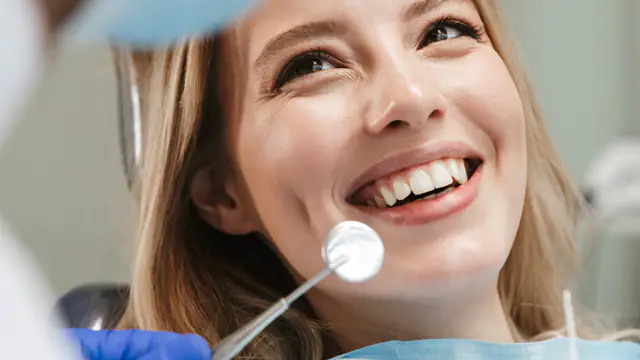
Oral health is a crucial aspect of overall well-being, yet it is often overlooked. For women, maintaining good oral hygiene is particularly important due to unique life stages and hormonal changes that can affect dental health. From puberty to pregnancy, menopause, and beyond, women’s oral health needs can vary significantly. Here’s a guide to understanding and promoting optimal oral health for women.
The Importance of Oral Health for Women
Oral health is more than just a beautiful smile; it is integral to overall health. Poor oral hygiene can lead to problems such as gum disease, tooth decay, and bad breath. Moreover, oral health issues can have broader implications, contributing to heart disease, diabetes, and complications during pregnancy. Understanding the specific oral health challenges women face can help in taking proactive steps to maintain a healthy mouth.
Life Stages and Oral Health
1. Puberty
During puberty, hormonal changes can increase blood flow to the gums, making them more sensitive and prone to swelling and bleeding. This can lead to a higher risk of gingivitis (early-stage gum disease).
Tips:
- Regular Brushing and Flossing: Brush twice a day and floss daily to remove plaque and prevent gum disease.
- Healthy Diet: Reduce sugar intake to minimize the risk of cavities and gum disease.
- Dental Check-ups: Regular visits to the dentist can help monitor and manage any hormonal changes affecting oral health.
2. Menstruation
Some women experience oral changes during their menstrual cycle, such as swollen gums, canker sores, or bleeding gums.
Tips:
- Good Oral Hygiene: Maintain a strict oral hygiene routine to combat these symptoms.
- Pain Relief: Over-the-counter pain relief can help manage discomfort from canker sores or swollen gums.
3. Pregnancy
Pregnancy brings significant hormonal changes that can increase the risk of periodontal (gum) disease, which is linked to preterm birth and low birth weight.
Tips:
- Professional Cleaning: Regular dental cleanings are crucial during pregnancy to prevent gum disease.
- Balanced Diet: Ensure a diet rich in vitamins and minerals to support both oral and overall health.
- Gentle Brushing: Use a soft-bristled toothbrush to avoid irritating sensitive gums.
4. Menopause
During menopause, reduced estrogen levels can lead to bone loss, affecting the jawbone and increasing the risk of tooth loss. Menopausal women may also experience dry mouth, which can lead to tooth decay and gum disease.
Tips:
- Hydration: Drink plenty of water and use saliva substitutes if experiencing dry mouth.
- Calcium and Vitamin D: Ensure adequate intake of these nutrients to support bone health.
- Regular Dental Visits: Monitor oral health closely and address any changes promptly with a dentist.
General Oral Health Tips for Women
Regardless of life stage, these general tips can help women maintain optimal oral health:
- Brush and Floss Regularly: Brush your teeth at least twice a day with fluoride toothpaste and floss daily to remove plaque and food particles.
- Healthy Diet: Eat a balanced diet rich in fruits, vegetables, lean proteins, and whole grains. Limit sugary snacks and drinks, as they can contribute to tooth decay.
- Avoid Tobacco: Smoking and using other tobacco products can lead to gum disease, tooth decay, and oral cancer.
- Limit Alcohol: Excessive alcohol consumption can increase the risk of oral cancer and other dental issues.
- Stay Hydrated: Drink plenty of water throughout the day to help wash away food particles and bacteria.
- Use Mouthwash: An antimicrobial mouthwash can help reduce plaque and fight gum disease.
- Regular Dental Check-ups: Visit your dentist regularly for professional cleanings and check-ups to catch any issues early.
The Connection Between Oral Health and Overall Health
Maintaining good oral health is not just about preserving your smile; it has far-reaching effects on overall health. Poor oral hygiene can contribute to conditions such as cardiovascular disease, diabetes, and respiratory infections. Conversely, systemic health issues can also manifest in the mouth, highlighting the importance of a holistic approach to health care.
Conclusion
Women’s oral health is an integral part of overall well-being, influenced by various life stages and hormonal changes. By understanding these unique challenges and taking proactive steps to maintain good oral hygiene, women can enjoy a healthy smile and better overall health. Prioritize your oral health today by following these tips and making regular dental visits a part of your health routine. A healthy mouth is a gateway to a healthy body and a happier life.
Comments are closed